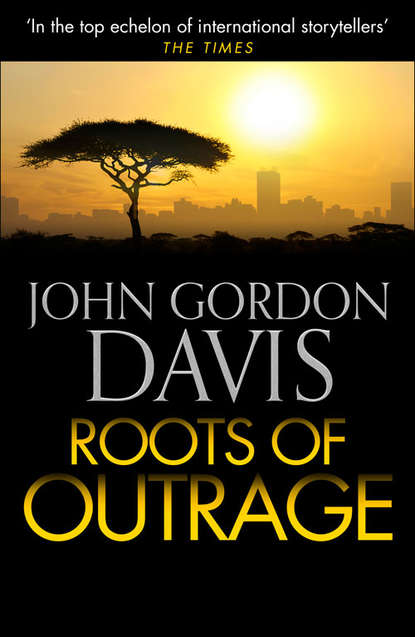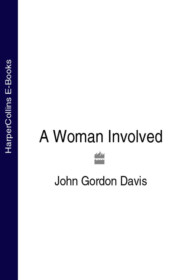По всем вопросам обращайтесь на: info@litportal.ru
(©) 2003-2024.
✖
Roots of Outrage
Автор
Год написания книги
2018
Настройки чтения
Размер шрифта
Высота строк
Поля
The bitter-enders wanted to fight on: not to do so meant that almost a century of suffering had been in vain – Slagter’s Nek, the Kaffir Wars, the Great Trek, the battles of Vegkop, Blood River, this terrible war, their whole hard-won independence … But the British pressure was now overwhelming, the countryside was exsanguinated, their very livelihoods destroyed, their women and children dying. Was it not better to lose the war but win the peace? They would get their self-government, albeit in a union with Cape and Natal colonies – and the dreaded question of the voting rights of natives would be decided by them, not by the British. And would not the Boers come to dominate the union government – would they not then have beaten the British at their own bloody game?
The debate was angry, but finally the bitter-enders threw in their hand so as not to split the volk further. And the commandos rode back to what was left of their farms, to try to rebuild their devastated lives.
Ernest and Sarie Mahoney died before the Boer War, but their son William, and his son Hector, both fought on the side of the British.
‘What was it all for … ?’ William Mahoney demanded in his journal shortly before his death.‘The British thought it was going to be a “tea-time” war – instead it taught them “an imperial lesson”, in the words of Rudyard Kipling.’
Writers from around the world were there: not only Rudyard Kipling, the immortal poet of Empire, but also Winston Churchill, Conan Doyle, Edgar Wallace, Banjo Patterson, who became Australia’s poet laureate; and John Buchan. The American and European press fiercely condemned the British as monsters who laid waste, starved women and children; the Boers they described as heroes. The greatest were General de Wet, General Smuts, General de la Rey, General Louis Botha, all of them fighting courageous running battles.
It was the longest, costliest, bloodiest, most humiliating war she fought in almost a hundred years. Over 450,000 British troops took almost three years to defeat a mere 87,000 combatant Boers who were reduced finally to a few thousand commandos. 22,000 British soldiers lost their lives, over 400,000 horses were killed, 15,000 innocent natives, over 27,000 Boer women and children died in the concentration camps. And most survivors were left destitute. The hideous scars will last a very long time: a nation of embittered paupers has been created.
And after the British soldiers sailed home, Sir Alfred Milner, supreme ruler of all the South African colonies, determined to crush the Boer spirit, culture and language, to turn the two old republics into real British colonies. He Anglicised the civil service and decreed that all education be in English. Boer children who used their mother tongue had to wear the label around their necks: ‘I am a Donkey: I spoke Dutch today.’
… and the Boer bitterness grew: not only had he been conquered for his gold, not only had he been brutally vandalised, not only had he lost loved ones in the dreadful concentration camps, but now his very culture was being humiliated. He now belonged to a volk of poor-whites: impoverished by the British scorched-earth policy, many were driven to the towns. There, poorly educated, unable to speak the language of his oppressor, regarded as a country bumpkin, he had to sell his labour in competition with the ubiquitous black man. And so, to his old fear of the black man as a warrior, as the Black Peril, was now added the fear of being swamped by him economically.
But Britain’s greatest injustice was to the black people. In order to woo the Boers into surrender, the peace treaty had agreed that the thorny question of the black man’s vote would be shelved until after responsible government – knowing that there was no likelihood of the Boers granting the franchise to the ‘kaffirs’. And, predictably, they did not. In short, the British purchased peace at the expense of the black man, and opened the door to legalised racial prejudice.
I have no doubt that this dereliction of British duty will plague South Africa for years to come … I hear that the natives are deeply hurt that they have been treated so badly. An organization has been formed, called the ‘African National Congress’, to work for their political rights and a fairer distribution of land …
And so the Boers lost the war but won the peace. When the first elections were held and the new Union of South Africa came into being in 1910, the Boer War hero, General Louis Botha, was the first prime minister, and he was a segregationist. His successor was General Jan Smuts, also a Boer War hero, also a segregationist, but Britain was rewarded for her duplicity by having a South African government who believed its best interests lay in being a member of the Empire. But vast numbers of Afrikaners believed they were being sacrificed in favour of English-speakers, and the Black Peril remained. The National Party was formed to pursue Afrikaner interests vigorously. Then along came World War I, and rebellion.
William Mahoney’s grandson George did not join Harker-Mahoney – he had the gift of the gab rather than the commercial instinct, and he became a lawyer and, in due course, a member of parliament. He kept up the tradition of the family journals, even when he was fighting in World War I. His journal continues:
Many Afrikaners hated to fight on the side of the hated British against the Germans who had been their allies in the Boer War a scant twelve years ago. A group of army generals tried to mount a coup d’état to recover the independence of their old republics. The battles were fast and furious, Afrikaner fighting Afrikaner. They lasted three months before General Smuts crushed the rebellion. And the scars of the Boer War were split wide open.
In 1918 a secret society called the Broederbond was formed to promote the domination by Afrikaners in all walks of life. When World War II came, and South Africa again went into battle on the side of the hated British against the Germans, Afrikaner nationalists who called themselves the Ossewa Brandwag hatched a plot with Hitler to assassinate General Smuts, mount a coup d’état and harness South Africa’s goldfields to the Third Reich. The plot was foiled but many Afrikaners had to be interned in concentration camps, including three future prime ministers.
And then the war ended in 1945, and the same old troubles resumed that had plagued the land since the Kaffir Wars and the Great Trek: the ‘native problem’, the ‘Black Peril’. The poor-white Afrikaner was still struggling, the English-speakers still dominated the land economically. And then came the fateful elections in 1948 …
General Smuts, the hero of the Boer War, was an old man, worn out by fifty years of bloody fighting for and against his Afrikaner volk. And although he was a segregationist, he was a paternalistic one who believed the problem had to be solved ‘by future generations.’ His weary policies were no emotional match for the strident National Party whose policy was immutable segregation as ordained in the Bible, and as envisioned in the Covenant taken by their forefathers at the Battle of Blood River: the immutable segregation of blacks from whites, territorially and politically. It was a strong, self-righteous policy of ‘South Africa for the White Man’ – which meant, more specifically, ‘South Africa for the Afrikaner’.
It was called Apartheid
PART I (#ulink_3feb2d7d-f737-5c03-ae5d-6c08906b0866)
1 (#ulink_3d7317f6-eb2f-5435-9c2f-7d795ea5ba63)
And so Apartheid entered political science, and the dictionary. It means ‘apartness’, and it is pronounced ‘apart-hate’. Although it was not the intention to generate hate, that is what happened, and numerous attempts to change the name – to ‘Separate Development’, ‘Plural Democracy’, ‘Self Determination’ – failed to eradicate the original connotation. Nor did the claims by the political architects that it was designed with the laudable motive that one race should not interfere with another’s cultural and political needs hold water.
As George Mahoney thundered in parliament: ‘The roots of this mad science, Mr Speaker, lie not in pious guff the Prime Minister gives us about apartheid being God’s will and a “mighty act of creation”; the roots of apartheid lie in racial prejudice and in the trekboers’ insatiable quest for the Lekker Lewe – the Good Life of Land, Labour and Security …’
Exclamations of Onsin (nonsense) rang out from the government benches, cheers from the opposition benches. Sitting in the stranger’s gallery of the august oak-panelled chamber, young Luke Mahoney looked down on his father with pride. George Mahoney was a stocky, handsome, square-faced man with bristling moustache and eyebrows.
‘The Lekker Lewe, Mr Speaker!’ he continued. ‘That’s why the voortrekkers trekked away from the insecurity of the Kaffir Wars in 1836, trekked away from the British administration’s new regulations about master and servant. And the establishment of the Boer republics achieved this Lekker Lewe, Mr Speaker, until the Boer War –’
Cries of Onsin, and groans.
‘But then came Union, Mr Speaker, and the Boers were on top again and they immediately resumed their pursuit of the Good Life: the land they now had – indeed the whole of South Africa! The security they now had, so it only remained to secure the labour – cheap labour for the farmers, for the industrialists, for those mines! And it is this unsavoury matter of cheap labour that has motivated the government ever since. The motive of filthy lucre, not high-falutin’ notions of God’s will –’
‘Skande!’
‘Oh yes, Mr Speaker, it is scandalous! Let’s first look at the Group Areas Act. This wicked legislation divides South Africa up into white zones and black zones – giving eighty-seven per cent of the land to the whites, and thirteen to the blacks! Can this be God’s will – that a mere four million whites, twenty per cent of the total population, receive eighty-seven per cent of God’s land? No, it is cynically, scandalously unjust! Now, from that unjust, sick starting point let’s review the rest of this rotten apartheid structure.
‘This Group Areas Act has resulted, predictably, in massive overcrowding of black land. This has resulted in blacks drifting onto white farms as squatters, where they are often tolerated in exchange for seasonal labour. But this uncontrolled squatting is anathema to this orderly minded government, so last year it passed the Prevention of Illegal Squatting Act! And this, too, it claimed as God’s will. In terms of this act, “surplus” blacks – surplus to the farmers’ labour requirements, that is – are forcibly removed back to their black zones. But who are these “surplus” people? Are they the healthy young men and women who can turn in a good day’s work for the white farmer? No, they are the dependants – the old, the infirm and the children – who are deported. And what is the result? The creation of squalid villages of old people and children who cannot work, cannot contribute to the overall economy, who are therefore helpless. This is a sick economic base, Mr Speaker, doomed to the creation of poverty and despair. And it is on this sick economic base that this government is bent on effecting the biggest social engineering exercise devised by man – and the result is absolutely predictable: failure, Mr Speaker – this policy is doomed!’ George’s face was getting flushed. His finger shot up. ‘It will result in degradation of the earth upon which these impoverished, overcrowded people try to scratch their living. And it will lead to hate – this government is creating hate against itself while trying to dress itself up in the shining raiments of God’s will. And,’ he shook his glowering face, ‘mark my words, this hate will one day rise up against this government and strike it down.’
Groans from the government benches. As the Speaker restored order, George Mahoney continued relentlessly: ‘And the same failure, and disaster, will arise from apartheid laws applicable in the towns, Mr Speaker! The philosophy in this unchristian country has always been that the towns are the white man’s creation and that the blacks have no right to be there, except in so far as they serve the interests of the white man! And so we have the Native Urban Areas Act, which removes blacks from the towns into “locations” outside town. But there is insufficient housing in these locations, Mr Speaker, so shanties develop – and it is this government’s policy to keep housing in short supply, deliberately, in order to create a feeling of impermanence. And so people are dumped on the bare veld with only communal water points and told to build their own houses. What cynical callousness! What materials are these poor people supposed to use? There are none! So they have to build out of cardboard and sacks and flattened tin! And the result is slums, shanty-towns. And slums are not only unhealthy, they breed crime and discontent!’
He frowned around the chamber in wonder. ‘Is this the way a sensible, Christian government treats its citizens, Mr Speaker? Is it sensible for a government to treat its subjects like scum! Is that likely to breed peace? Prosperity? A contented, cooperative people? Or is it likely to breed hate for those who forced this misery and poverty upon the people!’ He glowered, then his finger shot up again and he cried: ‘This government, Mr Speaker, is brainlessly creating an immense social crisis for itself and using the will of God to justify it!’
Groans from the government benches. George Mahoney shook his head angrily, then continued witheringly: ‘And another disastrous result of this inhumane policy, Mr Speaker, is the hostel system which requires blacks who have lived in the location for less than ten years to live as bachelors in squalid hostels without their wives and families, who must remain back in the homeland. Deprived of their family bonds, these overcrowded hostel-dwellers have become a social problem – men without their women, Mr Speaker, become restless, discontented, form gangs, prowl. Fight. Rape. Steal. These squalid hostels are hotbeds of trouble and crime! And because of the tribal nature of the African, these hostels become divided into Xhosa hostels and Zulu hostels, which leads to inter-tribal fighting. And these hostels become hotbeds of political discontent. It is crazy politics for any government to deliberately turn the labour force into political malcontents, ripe for rebellion! Not only is it cruel, it is insane!’ He raised a finger and cried: ‘This government is self-destructing!’
Jeers and groans from the government benches. The Speaker, seated on his carved throne, nodded wearily at George Mahoney.
‘And hand-in-hand with this crazy policy is the government’s inhuman policy of pass laws, to control the flow of labour for their precious Lekker Lewe. What other country in the world says that its citizens may not go out to look for work unless they have permission from an official? But that is the cruel lot of the poor black South African citizen – before he can look for work he must get a permit, a pass, which he probably cannot read. And these passes are only valid for fourteen days – if he has not found work in fourteen days the poor man must go back to his homeland empty handed. And if he does not go he is thrown in jail! Jail?! For the offence of looking for work in his own country to feed himself and his family! What staggering cruelty, to deny a man a proper chance of earning a livelihood. And then say it’s God’s will.’ He shook his head. ‘It’s a massive waste of the taxpayers’ money, because the police, who should be catching crooks, spend vast amounts of time and energy catching unfortunate peasants who haven’t got a valid pass! And the courts, which should be dispensing justice, are clogged up with these pass offenders! And the jails are overflowing!’ He stabbed the air with his finger. ‘It’s madness, Mr Speaker. And the further result of this monumental stupidity is massive black resentment. Even if the pass laws were humanely enforced they would lead to massive resentment, but as they are enforced by our totally Afrikaans police force – the entrance qualifications for which are low in order to provide employment for poor whites –’
Angry cries from the government benches.
George Mahoney shouted:’ – enforced by our Afrikaner police force, the pass laws have become instruments of racial persecution, bringing justice into disrepute, turning millions of innocent black men who only want a job into potential subversives! Mr Speaker, these black people will one day rise up against this stupid, cruel injustice and bring this government to its knees!’
Cries of Never! Nonsense! The Speaker sighed and nodded. George Mahoney shook his head disparagingly, then continued: ‘And what does the unfortunate black man encounter when he’s got his precious pass? Job reservation! Apartheid in employment to protect the white worker from black competition – particularly the poor unskilled Afrikaner! Job reservation – no, Sambo, you can’t be a bricklayer because that job is reserved as white man’s work! No, Sambo, you can’t do an apprenticeship to become a mechanic, or a plumber, or an electrician, because that job is reserved for white men. No, Sambo, you can only dig ditches or be a garden boy or work on the mines because we want to enjoy our Lekker Lewe at your expense!’
A government backbencher shouted: ‘What work did the black man have before the white man came – he Was only a cattle-herder and his wives hoed the fields –’
‘The Honourable Member,’ George Mahoney cried, ‘is quite right for once. But the white man came some centuries ago, and in those days the white man was also only a cattle-herder, Mr Speaker. But then civilization changed the economy, although the Honourable Member hasn’t noticed as he is still only a cattle-herder at heart. But we white men have resisted this change by imposing job reservation, and though the Honourable Member can’t grasp the folly of it being a cattle-man, it will result in an unhealthy economy and eventual rebellion which will, sure as God made little green apples, destroy not only the honourable member but the Lekker Lewe he so recklessly, mindlessly, brainlessly cherishes!’
George Mahoney smiled sadly at the boos and derisive laughter, spread his hands and appealed theatrically to the heavens for help. Up in the stranger’s gallery, young Luke Mahoney was grinning with pride. His father continued: ‘Alas, Mr Speaker, half of the government benches are occupied by brainless, blind, silly asses!’
Midst outcries the Speaker thundered: ‘The Honourable Member for Transkei will withdraw that remark!’
George Mahoney held up his palms. ‘Mr Speaker is quite right, of course. And I do withdraw it: Half of the government benches are not brainless, blind, silly asses!’
Anger and laughter. Mr Speaker banged his gavel. George Mahoney went on happily: ‘And now look at this wondrous God’s will in the field of education in this wondrous Malice in Blunderland of ours.’ He frowned. ‘If this government knew anything about economics it would realize that a well-educated populace is the essential requisite of a nation’s prosperity nowadays. Repeat nowadays, Mr Speaker – not the age of the oxwagon, the voorlaaier and the Great Trek in which the government is still living. I’m speaking of the real world, the world of telephone, radio, the atom bomb and, would you believe, this new thing called television – which the government does not allow us to have lest it corrupt our tiny minds. The new world of the Cold War, in which communist Russia is exploiting the anger of the underdog and promoting world revolution! That is the dangerous world we live in and this real, dangerous world is best met by a prosperous people. Which means a labour force which is properly educated, fairly treated, and fairly paid!’ He frowned around the government benches in wonder. ‘But what does this government do? Does it educate its populace properly?’ He held up a finger. ‘Ah yes – it educates its white populace very well! But what does it give to its black populace? Only such education necessary to equip them for their role as “hewers of wood and drawers of water”!’
‘Quite right too,’ shouted a member of the government benches.
George Mahoney punched his finger at the floor and cried: ‘This government intends to keep the blacks as perpetual serfs, to serve the Lekker Lewe! To supply labour for menial tasks, as they think befits the Sons of Ham! What unchristian arrogance! And what utter folly to imagine that they, a minority of Afrikaners, can keep a majority of blacks suppressed forever, and insult their intelligence –’
‘What intelligence?’ a government frontbencher shouted.
‘You see, Mr Speaker – that’s how the Honourable Member thinks. And it will lead to this country’s downfall, for not only will they create an ill-educated populace which cannot contribute properly to a modern economy, but sure as God made little green apples these black students will one day rise up in rebellion –’
‘And we’ll be ready for them! Who’s paying for their education – the white taxpayer!’
George Mahoney’s bushy eyebrows shot up. ‘Ready for them? With your kragdadigheid – your batons and guns! Is that the way a sensible government runs its country? No, it is a crazy way, to have to rely on force! It is moonshine madness to spend the taxpayers’ money in such a way that the country is angry, resentful, bitter, rebellious!’
He glowered, then went on with withering scorn: ‘As it is moonshine madness to antagonise the populace by cruel social engineering which attempts to stop human relationships between the races! Punishes people who fall in love across the colour bar! The Population Registration Act classifies each one of us into card-carrying racial groupings and thereafter determines who may do what to whom for the rest of our lives! The Prohibition of Mixed Marriages Act forbids people of different races to marry – and if they were already married before that date they either have to divorce or the white spouse has to be reclassified as non-white and thereafter live in a non-white area!’ He spread his hands in appeal. ‘What kind of a law is it that says you must divorce? Is it a Christian law? No – it is the law of the devil! And even the children can receive different racial classifications depending on their appearance – and families have had to split up and live in different areas! I ask you, Mr Speaker – is it a Christian law that forces a family to split up?’ He punched his palm. ‘No, it is a diabolical law! And the Immorality Act punishes people of different pigmentation who have sexual intercourse! Throws them in jail! Drags them before the courts for public humiliations, brings scandal upon their families, ruins their careers! It has driven people to suicide. What kind of country makes sexual intercourse between consenting adults a crime? It is grotesque.’
‘Immorality is against the word of God!’











